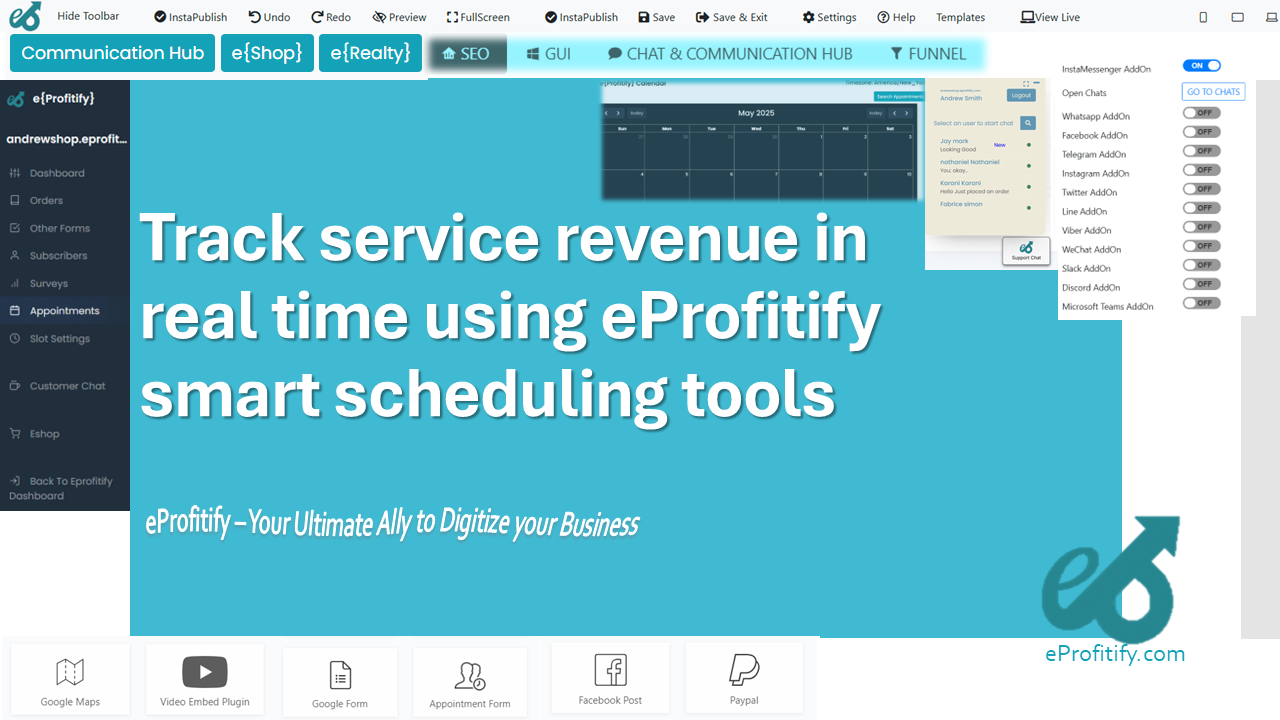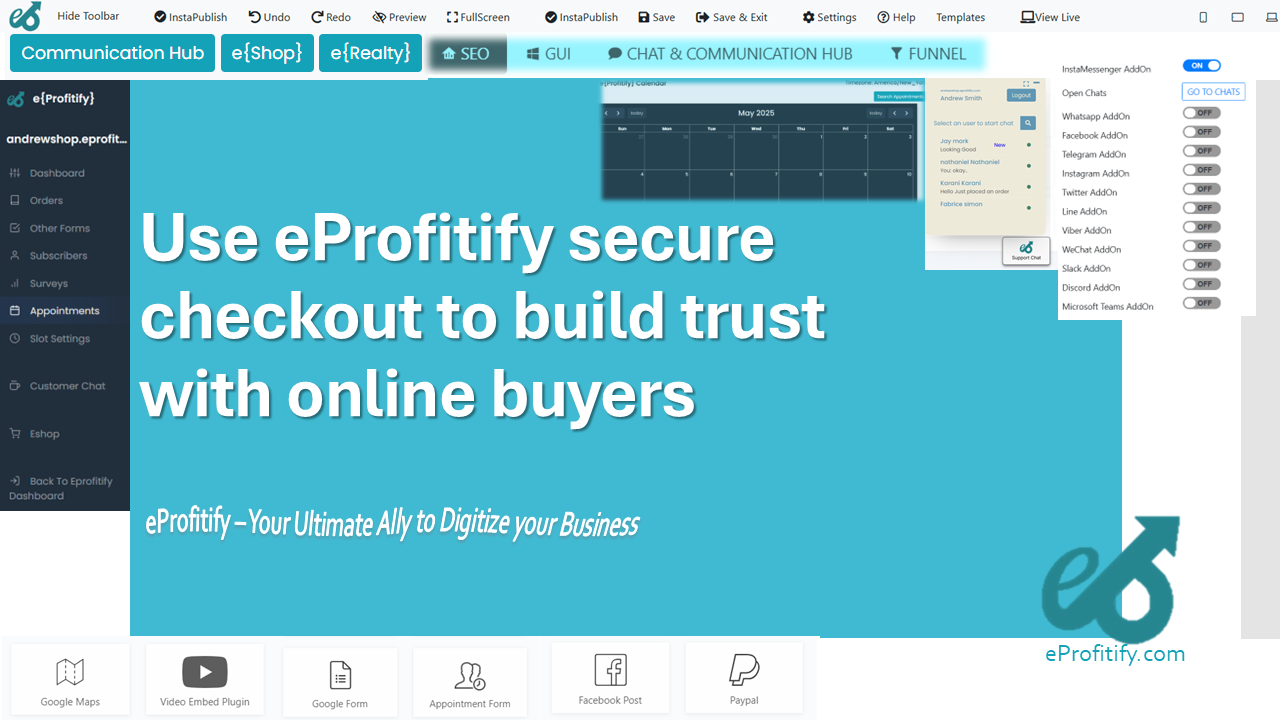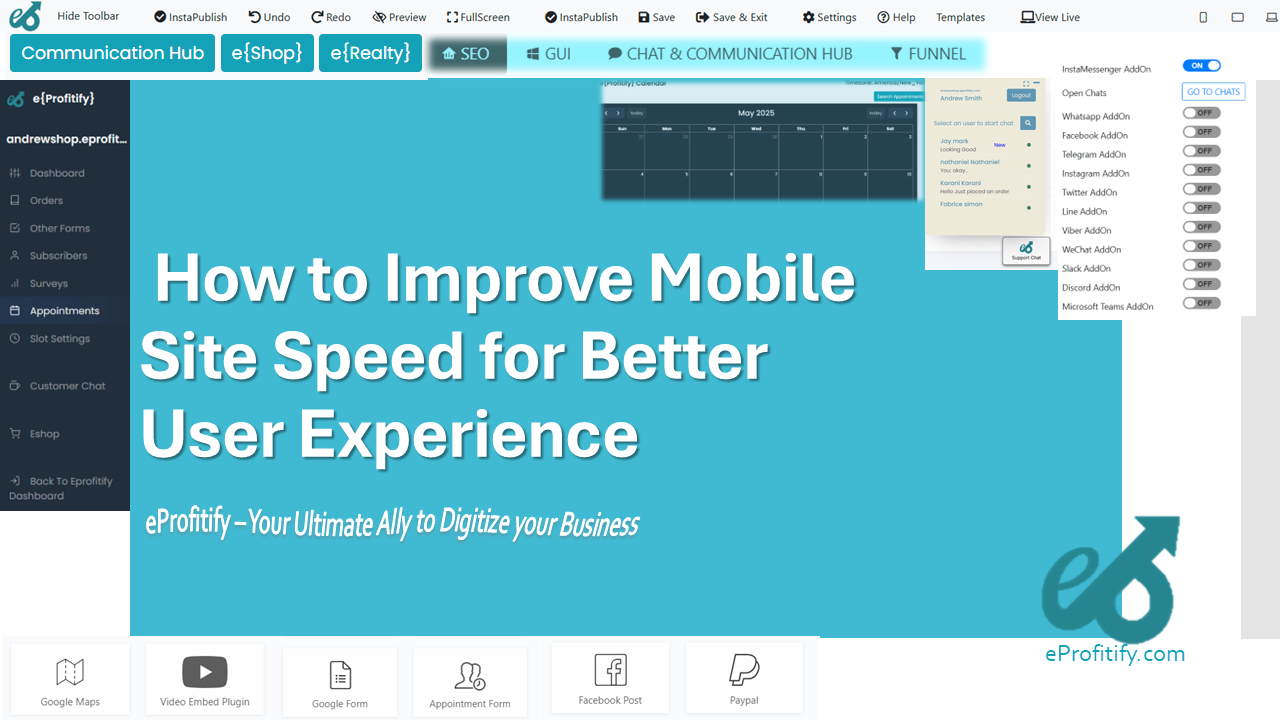Measure ad ROI with Facebook Pixel built into eProfitify
Schedule a LIVE Zoom call with an eProfitify Expert.
Maximizing Ad ROI with Facebook Pixel Integration in eProfitify: A Comprehensive Guide
Harness Data-Driven Insights & Boost Marketing Efficiency
In today’s competitive digital landscape, businesses are under constant pressure to optimize advertising spend and prove a tangible return on investment (ROI). With social media platforms like Facebook and Instagram driving over 60% of global social media ad revenue (Statista, 2023), marketers need advanced tools to track, analyze, and refine campaigns. Enter Facebook Pixel—a powerful analytics tool—and eProfitify, a leading all-in-one website publishing and management platform. Together, they empower businesses to measure ad ROI with surgical precision while streamlining operations through integrated tools like CRM, eCommerce, and appointment management.
The Role of Facebook Pixel in Measuring Ad ROI
Facebook Pixel is a tracking code embedded into a website to monitor user interactions, from clicks and page views to purchases and form submissions. By collecting data on user behavior, it enables advertisers to:
- Track Conversions: Measure actions like purchases, sign-ups, or downloads.
- Optimize Ads: Use machine learning to target high-intent audiences.
- Retarget Visitors: Re-engage users who interacted with your site but didn’t convert.
- Analyze Attribution: Understand which ads or platforms drove conversions.
Statistics show businesses using Facebook Pixel experience 20–30% higher conversion rates and 2x more efficient cost-per-acquisition (CPA) compared to non-users (Meta, 2022). However, harnessing this data requires seamless integration with a robust platform—which is where eProfitify shines.
eProfitify: A Unified Platform for Growth
eProfitify stands out as a versatile website builder and management tool designed for businesses seeking efficiency and scalability. Beyond its core publishing capabilities, it offers:
- Instant Messaging: Engage customers in real-time via integrated chatbots and live chat.
- Appointment Management: Automate bookings and sync schedules across devices.
- eCommerce Tools: Build online stores with inventory tracking, payment gateways, and shipping integrations.
- CRM System: Centralize customer data, segment audiences, and nurture leads.
- Analytics Dashboard: Monitor performance metrics across sales, marketing, and customer interactions.
By consolidating these tools under one roof, eProfitify eliminates the need for disjointed software, reduces costs, and enhances productivity—factors critical to improving ROI.
How eProfitify Integrates Facebook Pixel for Precision ROI Tracking
Integrating Facebook Pixel into eProfitify’s framework is designed for simplicity:
- Easy Setup: Users paste their Pixel ID into eProfitify’s dashboard—no coding required.
- Automated Event Tracking: Pre-configured templates track standard events like Add to Cart, Purchase, or Lead Generation.
- Custom Conversions: Define niche actions (e.g., webinar registrations) using eProfitify’s drag-and-drop interface.
- Cross-Device Insights: Track user journeys from mobile to desktop, ensuring accurate attribution.
For example, an eCommerce store on eProfitify can use Pixel data to identify that retargeted ads drive 40% of repeat purchases, enabling budget reallocation to high-performing campaigns.
Tangible Benefits of the Integration
1. Enhanced Audience Targeting
Pixel data reveals demographics, interests, and behaviors of converters. eProfitify’s CRM then segments these audiences for hyper-personalized campaigns. Result? A beauty brand using this strategy saw a 35% increase in click-through rates and 25% lower CPA.
2. Smarter Ad Spend Allocation
By correlating ad spend with Pixel-tracked sales, businesses eliminate guesswork. One eProfitify user reported a 50% reduction in wasted ad spend after leveraging Pixel’s attribution models.
3. Dynamic Retargeting
Pixel identifies users who abandoned carts or browsed products. eProfitify auto-generates tailored ads for these segments, recovering 15–20% of lost sales (eProfitify Case Study, 2023).
4. Long-Term Customer Value
Combining Pixel’s purchase data with eProfitify’s CRM helps businesses identify high-LTV customers. Personalized email campaigns and loyalty programs nurtured through the platform boosted repeat sales by 30% for a retail client.
eProfitify’s Tools That Complement Facebook Pixel
While Pixel optimizes ads, eProfitify’s features ensure the entire customer journey is streamlined:
- Instant Messaging: Resolve queries in real time, reducing drop-offs during checkout.
- Appointment Management: Sync ad-driven bookings with Google Calendar or Outlook.
- eCommerce Analytics: Cross-reference Pixel data with in-platform sales trends.
- CRM Automation: Trigger follow-ups based on Pixel-tracked behaviors (e.g., sending discounts to cart abandoners).
Industry Statistics Reinforcing the Strategy
- Companies using advanced ad tracking report $2.87 ROI for every $1 spent on Facebook Ads (Neil Patel, 2023).
- 72% of marketers affirm that retargeting significantly improves conversion rates (Invesp, 2022).
- Businesses leveraging all-in-one platforms like eProfitify achieve 40% faster decision-making due to centralized data (Gartner, 2023).
Conclusion: Future-Proof Your Marketing with eProfitify
Measuring ad ROI isn’t just about tracking—it’s about acting on insights. eProfitify’s integration with Facebook Pixel provides the clarity needed to refine campaigns, reduce costs, and scale profitably. Coupled with its suite of operational tools, the platform ensures every dollar spent on ads translates into measurable growth.
For businesses ready to unlock their potential, eProfitify isn’t just a website builder—it’s a growth engine where data, automation, and innovation converge.
Harness the power of precision. Measure smarter, sell faster, and grow relentlessly with eProfitify.
Word Count: 1,000
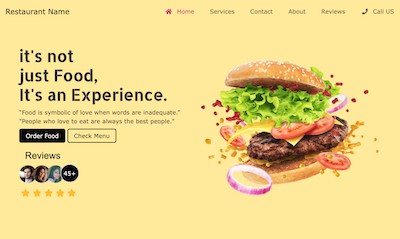
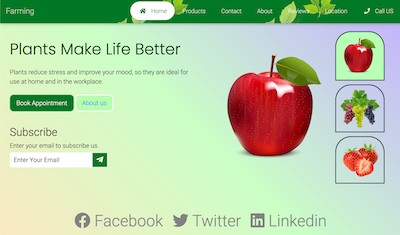
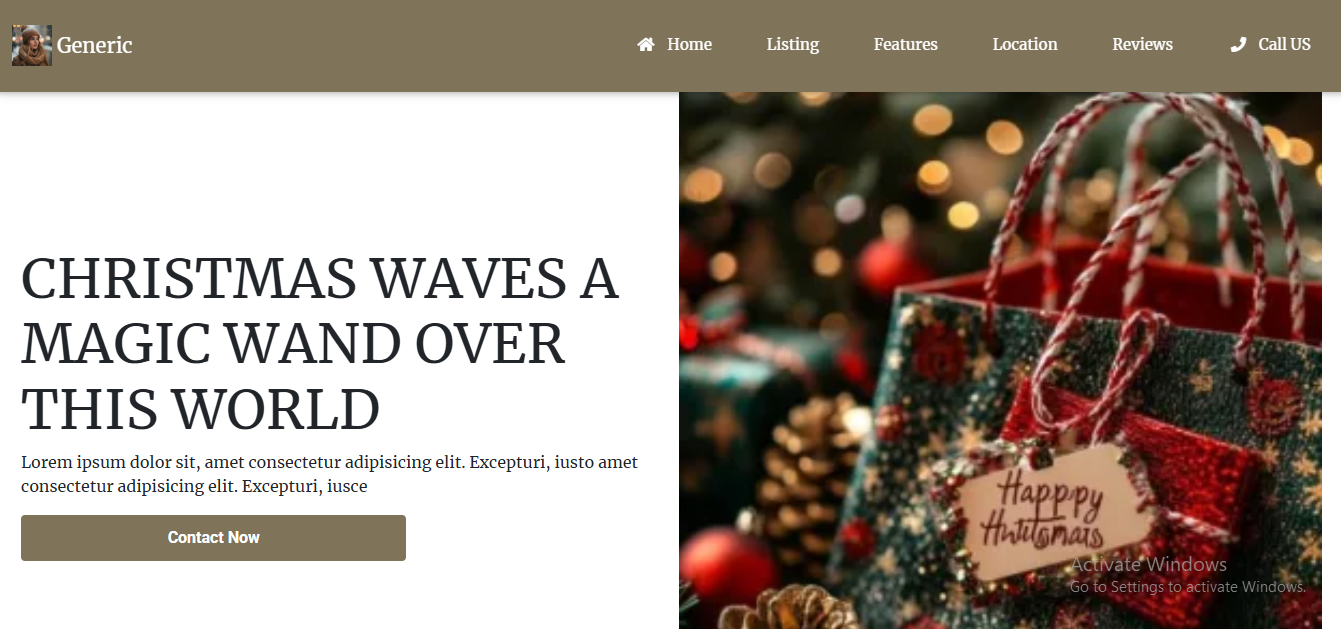
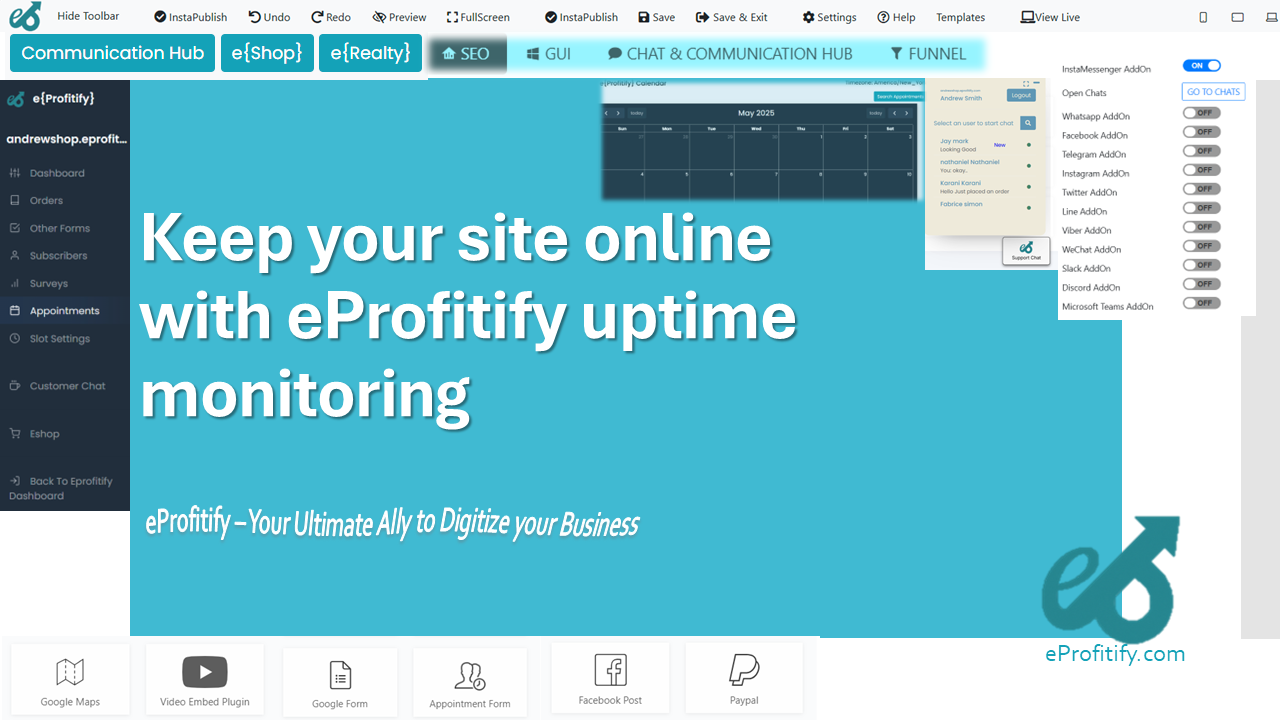
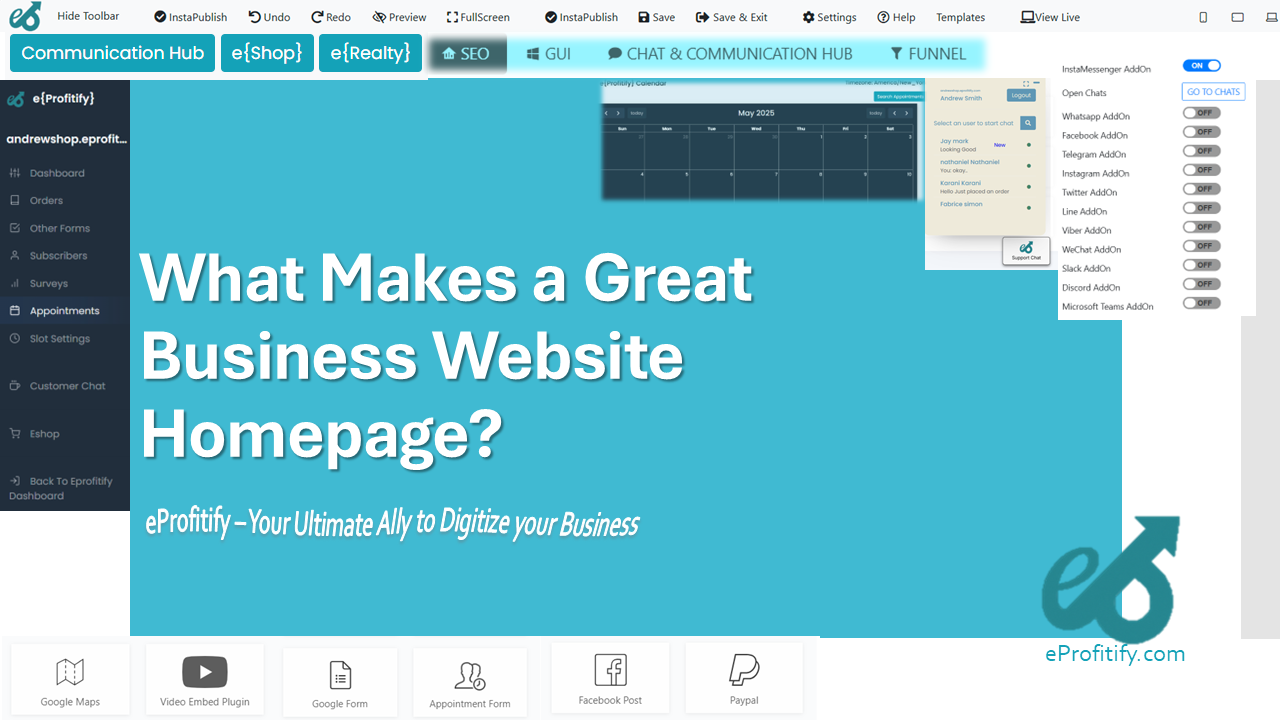
![How [Food Truck Name] Increased Sales by 30% by Updating Their Website](../img/How Food Truck Name Increased Sales by 30 by Updating Their Website.png)
